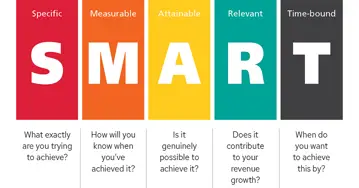Common Interview Questions for Management Trainee (MT) Positions
Management trainee (MT) positions have become increasingly popular in recent years. Usually, MT programs are talent reserve plans for large enterprises aimed at independently training future mid-to-senior-level managers. MTs typically go through internships in various departments of the company, gaining an understanding of the company's entire operational process.
They are then assigned to positions that align with their individual strengths and assessments, which is referred to as "positioning." Ultimately, MTs often progress to roles such as department heads or branch managers. So, what kind of questions are MT candidates commonly asked during interviews? Today, the assistant is here to list them for you.
1. What, in your opinion, are the essential qualities that a qualified manager should possess?

Answer Tip:
You should discuss the abilities that a qualified manager needs. Explain how these abilities would help you effectively manage a team.
Sample Answer:
First, I believe a qualified manager needs sound thinking. This allows them to approach problem-solving from a comprehensive perspective.
Second, they should possess relevant professional knowledge, such as the ability to use data analysis software, basic knowledge of finance and accounting, and a grasp of psychology and management principles.
Third, self-confidence is essential for a manager. If you lack confidence in your leadership, it may affect your authority in the eyes of your team.
Fourth, judgment ability is crucial. A manager's decisions should be correct. Making the wrong decisions can be detrimental.
Fifth, a manager must have strong execution capabilities. This includes organizational skills, good work habits, and diligence.
2. What are the advantages and disadvantages of being a management trainee (MT)?
Sample Answer:
Advantages:
1. Higher Salary: Using internet companies as an example, if you enter as a fresh graduate, the salary of MTs is lower than most technical positions, but it's still higher than many marketing positions.
2. Rotation Program: Rotations provide a broader perspective and allow for improved networking. For individuals with strong social skills, this offers opportunities to expand their network. It's also beneficial for enhancing professional skills and abilities.
3. Promotion Opportunities: MTs have the chance to interact with various upper management personnel. This increased visibility often gives them an advantage in promotions or when competing for the same positions.
Disadvantages:
1. Discomfort Due to Rotations: For many large enterprises, different business units are often located in different office buildings, and sometimes MTs might need to change cities every few months. This can lead to the inconvenience of frequently relocating and updating contact information.
2. High Pressure: Although the goal of an MT program is to groom future company leaders, not everyone will successfully progress to higher positions. Competition among MTs can be intense, leading to high pressure.
3. Low Team Morale: As an MT, low team morale can be a common issue. The answer would include both emotional support and career advancement opportunities. Encourage open communication and feedback, consider promotions based on performance, and possibly adjust salaries. Additionally, it's essential to understand the reasons for low morale and address the issue at its root.
4. If someone around you is promoted to a managerial position within six months of rotation, but you haven't, how would you react?

Answer Tip: Avoid expressing jealousy or negative comments about others. Instead, focus on self-improvement, your own efforts, and your willingness to learn and grow.
Sample Answer: I would not feel jealous of their promotion; rather, I would see it as an opportunity to learn from them. Achieving a managerial position within six months indicates that they possess unique strengths and qualities. I would approach them to learn about their strengths and what made them successful in their new role. Then, I would assess my own areas of improvement and work diligently to enhance my capabilities. Ultimately, I would not give up but persist in my efforts to achieve my career goals.
5. Can you describe a challenging situation you've faced in a team or leadership role and how you handled it?
Sample Answer: I once had to lead a team with diverse personalities and conflicting opinions on a project. To address this, I initiated team meetings to foster open communication, encouraged everyone to share their perspectives, and facilitated a compromise that led to a successful project completion. It taught me the importance of effective teamwork and conflict resolution.
6. How do you stay updated with industry trends and developments relevant to your field?
Sample Answer: I regularly follow industry news, attend seminars and workshops, and subscribe to relevant publications. I also network with professionals in the field, which helps me stay informed about the latest trends and innovations.
7. What's your approach to goal setting and achieving targets as a manager?

Sample Answer: I believe in setting SMART (Specific, Measurable, Achievable, Relevant, Time-bound) goals with my team. I ensure that goals align with the company's objectives, break them down into smaller tasks, and regularly monitor progress. I also provide support and resources to help team members achieve their targets.
8. How do you handle stress and high-pressure situations in the workplace?
Sample Answer: I manage stress by prioritizing tasks, setting realistic expectations, and practicing time management. I also maintain a healthy work-life balance, engage in stress-relief activities, and seek support from colleagues when needed.
9. Describe a situation where you had to adapt to a significant change in your work environment. How did you handle it?
Sample Answer: In a previous role, our company underwent a major restructuring. I adapted by staying informed, communicating with colleagues to understand the changes, and embracing the new opportunities that arose. I remained flexible and helped my team navigate the transition successfully.
10. What leadership style do you identify with, and how do you adapt it to different team members or situations?
Sample Answer: I consider myself an adaptive leader. I tailor my leadership style to the needs of the team and the situation. For instance, I might use a more directive approach when facing a crisis but switch to a more democratic style during collaborative projects, ensuring the best outcomes for each situation.
In Summary
Management trainee (MT) positions offer a unique pathway to develop future leaders in large enterprises. Aspiring MT candidates must be well-prepared for interviews and discussions on qualities of effective managers, the advantages and drawbacks of MT programs, and their ability to handle challenging situations, adapt to industry changes, set and achieve goals, manage stress, and employ flexible leadership styles.
Demonstrating their readiness to learn, grow, and adapt is crucial in showcasing their suitability for these competitive and dynamic roles. By mastering these interview questions, candidates can position themselves as strong contenders for MT positions and future leadership roles within the organization.
Aniday's HR Services
Headhunting Service
Find and recruit quality candidates in just 1 week! Supported by 40,000 experienced headhunters in IT, Finance, Marketing… capable of recruiting in any region.
Headhunting Service ➔Employer of Record (EOR) Service
On behalf of your business, we recruit employees and handle payroll without the need to establish a company in markets such as Vietnam, Singapore, Malaysia, India, Indonesia…
Employer of Record (EOR) Service ➔